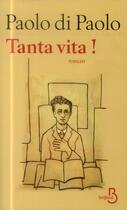-
Date de parution : 13/11/2023
-
Editeur :
Teneues Verlag
-
EAN : 9783961714889
-
Série :
(-)
-
Support :
Papier
Résumé:
The extraordinary picture story by Paolo Di Paolo, accompanied by texts by Pier Paolo Pasolini which documents and narrates Italians on vacation during Summer 1959, from the Tyrrhenian to the Adriatic Sea; from Ventimiglia to Trieste (from the western to the eastern border). In 1959 Paolo Di... Voir plus
The extraordinary picture story by Paolo Di Paolo, accompanied by texts by Pier Paolo Pasolini which documents and narrates Italians on vacation during Summer 1959, from the Tyrrhenian to the Adriatic Sea; from Ventimiglia to Trieste (from the western to the eastern border). In 1959 Paolo Di Paolo is a 34-year-old photographer collaborating with the cultural weekly magazine Il Mondo directed by Mario Pannunzio, and the widely distributed magazine Tempo. Pier Paolo Pasolini is a promising 37-year-old writer who had published The best of Youth, The Street Kids and A Violent Life. He is not yet a film director. In Italy, the «economic miracle» has just begun. The newspapers tend to offer to Italian families a microcosm of mythical characters as a diversion to the dullness and fear of war, emigration, and poverty. Arturo Tofanelli, editor in chief of the monthly Successo and the weekly Tempo, entrusts the two young men, Di Paolo and Pasolini, who did not know each other, to do a report on the Italian Summer Holidays that will be published by Successo magazine in three issues (July, August and September 1959). The writer and the photographer set off from Ventimiglia together, with the plan of traveling through the coasts of Italy to the south and climbing up to Trieste. But they have different visions. «Pasolini was looking for a lost world of literary ghosts, an Italy that no longer existed,» recalls Di Paolo. «I was looking for an Italy that was looking to the future. I conceived the title The Long Road of Sand meaning the strenuous road traveled by Italians to reach well-being and holidays after the War.» A complex, delicate partnership is born between Pasolini and Di Paolo, they will travel together only the first stage of this journey, but this experience would later be consolidated in mutual respect and trust.
Donner votre avis









